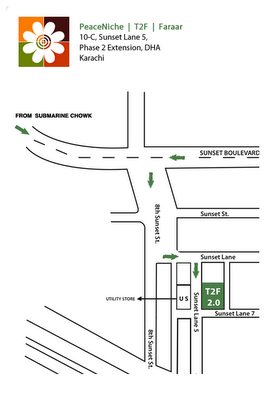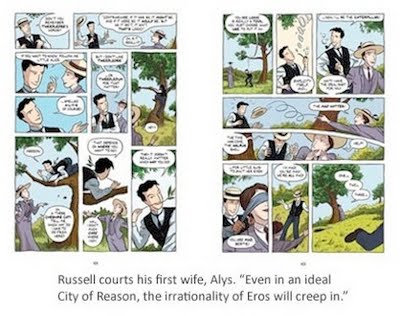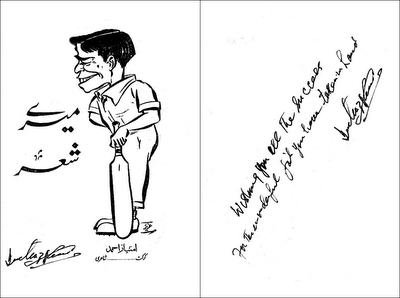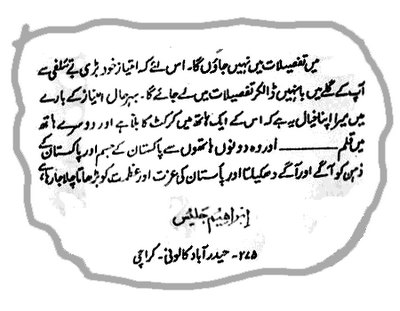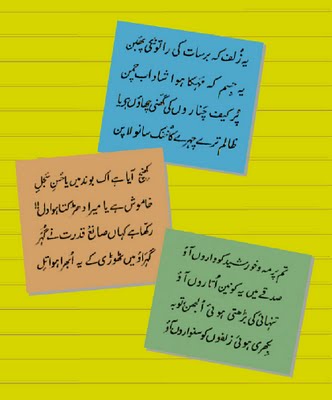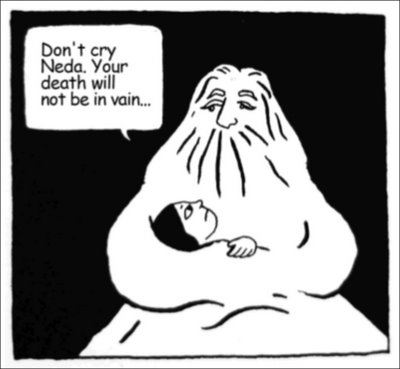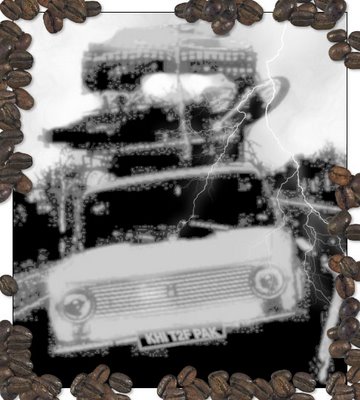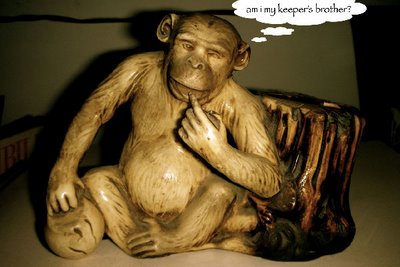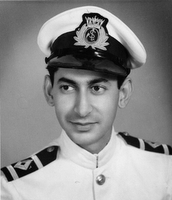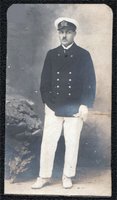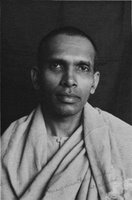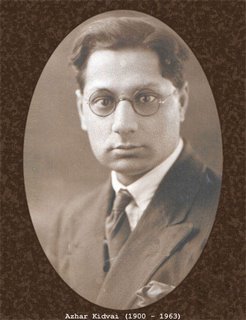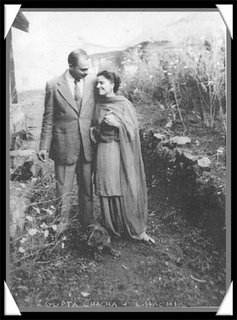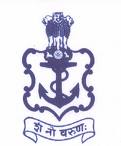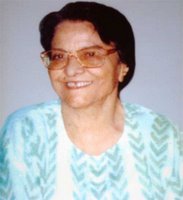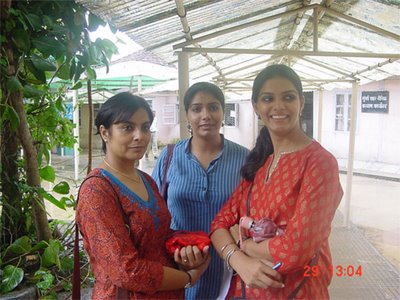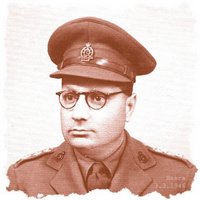
Rewind to late-1944 to 1945 (give or take 6 months ... for I am just guessing). The Second World War is in full swing. My father, a doctor, has had to enroll in the Army. The three of us - Abi, Ummi, and I - are constantly on the move from camp to camp.
Abi's short postings take us into cantonments from
Jhansi to
Campbellpur - places now in two different countries but made famous by their queens - and several others towns I can only vaguely recall. For
some details, however, my memory is almost photographic: I can recall every face at our table - even the orange floral pattern on the sari Ummi was wearing - when the cook, Salamat, came running in to warn us that
Sultana Daku was about to attack. Of course, like most things associated with Salamat, it turned out to be a figment of his opium-inspired imagination. I guess why I haven't forgotten the incident is because I have been forever chided for asking "Will he sign my autograph book?"
I am 4+ years old and always the only child at all of these places, as far as I can recall. (Wish I had asked my parents
why that was so ... for it does seem odd to me now.) This lack of peers makes me spend most of my time around the same things that the grown-ups around me enjoy: books, magazines, music, poetry ... and sitting with them, trying to make sense of their discussions.
Travelling with us everywhere, among Abi's uniforms, Ummi's saris & ghararaas, my favourite embroidered
chikan kurtaas (and my own
uniform) is my box of Meccanos #0/#1 and a small crate of Abi-Ummi's books.
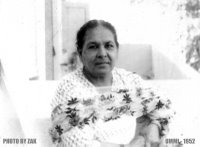
Apart from Ummi's stack of
Ismat issues and
Kohé Qaaf Kay Peechhay - a book of children's stories from which she read to me - I can recall 4 of them even 60+ years later: There is a
Deevaané Ghalib, for which my mother has made a slipcase in papier-maché and decorated with dried leaves. On one large leaf is her attempt at a pen-sketch of Ghalib that she is very proud of, until one of Abi's colleagues assumes the sketch to be Jesus. (He thinks the book is an Urdu translation of the Bible and is being kept, like Qurãns, in a
jüzdaan). The other books are Palgrave's
Golden Treasury,
Feroze-ul-Lughaat (Farsi), and a
Platts' Dictionary that was gifted to Abi by someone at one of the camps. The latter 2 are still with me
:-)My lifelong habit of travelling heavy is obviously inherited from my parents, for there is also another 'essential' and much cared-for set of items that weigh a ton and go everywhere with us: A black trunk that contains an HMV wind-up gramophone and a small music 'collection' (78 RPM records), neatly stored in 2 metal boxes, painted dark green. Inscribed on them in white paint:
WEST;
EAST. The first holds some records by Caruso, Gigli, Chaliapain, McCormack, and Debussy's
Claire De Lune by someone. Imagine how often I must have heard all these names to be familiar with them at that age! The second, a bigger box, is populated by our own classical music's demi-gods: Fayyaz Khan, Karim Khan, Bai Kesarbai, Omkarnath Thakur, Enayat Khan. It also has a thin balsa wood partition that keeps these giants segregated from mere mortals who sing "light pieces": K. L. Saigal
*, Akhtari Bai, Kamla Jharia. There's even a
Talat Mahmood (his very first:
Sab Din Ayk Samaan Naheeñ Tha) - included, I suspect, more because of Abi's almost-paternal love for his younger cousin than for the song. (Ummi enjoyed the song, but it just wasn't on my father's musical hot-list ... although he got all teary-eyed and mushy whenever we played it!)
At one or two camps, where we stayed relatively longer, Abi made friends with a few people equally interested in English literature, Urdu
shaaeri, and music. The well-known humourist, Dr. Shafiq-ur-Rahman, was my father's junior at one camp and was always a barrel of fun when he came over, with my mother and others teasing him about some new nurse or the other he would fall for on a fortnightly basis. (This, I narrate not as much from memory as from tales retold.) Shafiq chacha and my father had everyone rolling with laughter as they used crazy words, such as
Posheedah Ghünchee for
Chhipkalee). There were humourous verses, too, a few of which, including a ghazal with a funny
qaafiah ("ch, ch" = "tsk, tsk" - by Abi) appear in Shafiq Chacha's book,
Lahrayñ. This
scanned image of three of its couplets is from Abi's
bayaaz.
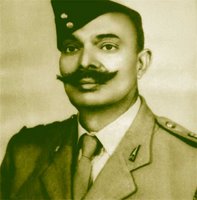
Three other people who stayed in touch over the years were Khan Chacha, Badshah Chacha, & Gupta Chacha. The first two came to Pakistan and our family ties continued beyond their deaths and those of my father and mother. Sadly, Badshah Chacha (whose eldest son laughingly claims to have been conceived at our house) died very early. Khan Chacha was around for quite a while and continued visiting Ummi and me regularly after my father passed away in 1963. Despite the fact that these two
chachaas were part of my life as I grew up in Karachi - and were extremely affectionate and caring - it was "Gupta Cha", left behind in India, whom I inexplicably missed most.
Fast Forward: It's January 1946. The war has been over for months. We are in Delhi, where Abi has rented a space and set up a small clinic, which he hopes to expand. He has asked for a release from the Army and is waiting for it to arrive. Ummi is busy all day, putting together crockery and stationery, even embroidering a floral
K on new bed-sheets and pillow-covers for the 2-bed 'overnight hospital' they hope to build in the small space behind the clinic some day.
Our flat above the clinic is small but frequently filled with poets and writers, because Abi is the Joint Secretary of
Anjumané Taraqqiyé Urdu. (The other 'joint' being a young Jamiluddin Aali). I have vague memories of Ustaads like Jigar and Seemaab on one or two occasions and a clearer one - from what may have been the last week in that house - of a very young Habib Jalib, whom I remember because of his beautiful voice, long hair, and the super-shiny :-) white sharkskin
shervaani.
We are just beginning to settle down but Abi is suddenly asked to report for another year and is shunted off to medical camps in Baghdad, Cairo, and Jerusalem. Keen on Biblical History - it is from him, again, that I get
my passion for it - these postings thrill him as he visits hundreds of legendary sites. Take a look at a picture of Jesus's traditionally claimed
birthplace from Abi's album.
Abi even visits Karachi during his to-ing and fro-ing and is impressed by what was then a lovely, friendly and exremely clean city.
Here's a view that I also found in his album of Elphinstone Street (now Zebunnisaa Street, named - oddly, methinks - after the daughter that King Aurangzeb kept
imprisoned for years
***). Times change! The city has changed in every conceivable and inconceivable way, but I still love it, madly!
The air in our Dilli house is beginning to fill with the talk of Pakistan. My mother's cousin, Ziauddin Kirmani (ZDK) is constantly heard arguing for the Muslim League, while my father and a few of his politically active Congress-supporting friends argue for a united India.
Interesting factoid: ZDK edited and published, from Lucknow, a paper called Pakistan ... well before the name was coined for this country. Later, he also authored a biography of the Prophet, The Last Messenger with a Lasting Message - An Unconventional Study (recently re-published by his son, Tariq, and available at T2F). I'd strongly recommend it to those looking for a fresh approach, interesting references related to early Islamic history, and succinct biographical sketches of the Prophet's contemporaries ... but I must warn readers that certain sects have been upset about a couple of portrayals. The book is intriguingly dedicated "to those who seek the truth and are prepared to face it".
Soon, my father leaves for his new posting, packing Ummi and me off to to my maternal aunt in Calcutta, where her husband works for the Sea Customs. Also in Calcutta (now Kolkota) lives my paternal grandfather (of whom everyone I know is scared to death) ... more about him in some other post ... so it is a treat for all of us that my uncle is soon posted to Budge-Budge (now
Baj-Baj), an oil pier 2o miles up the Hooghly. The distance from central Calcutta, though short, is mercifully not entirely conducive to my grandpa dropping in too frequently.
1947 arrives with bloodshed and riots in Calcutta, turning the Hooghly occasionally pink. My only playmate - Sattar, a family servant's child brought up by my aunt and just a bit older than I - spot a body or two floating up-river with the tide. We even have a rather gruesome encounter with a severed head, once.
My uncle, Asad Ali, and his close friend and neighbour, Shaukat Chacha, are employed in the Sea Customs because of their
hockey prowess. They talk each day about how close "we" are to attaining Pakistan. My uncle and aunt are extremely fond of me. They have no child of their own and are like my second-set of parents. I even call them
Ammi Jaan and
Abbu Jaan, titles generally used to address one's own parents. In contrast to my parents, they are such fanatical Muslim Leaguers, they even alter my name. Not legally, of course, thank goodness. But in my books and notepads I am made to write
Mohammad Zaheer Alam Kidvai
Jinnahi! One of these books I still own: It is
Vol. 2 of Hafeez Jallandhari's
Shaahnaamaé Islam, which I used to once recite full throatedly to anyone who'd listen, thrilled at the descriptions of the bloody battles and the 'heroic' deeds of the early Muslims. Until I
grew up ...
It's August 1947, now. Pakistan is a reality. Where we
are is relatively safe but from conversations and the BBC news over the radio we hear that things are bad everywhere. Our family has to move out and head to Bombay from where we are to travel to Karachi, since
Abbu Jan has 'opted' for
West Pakistan. I suspect that the decision to not move to
East Pakistan - so much closer to Calcutta and an obviously easier/safer move - was taken partly because my grandpa was migrating to Dhaka ;-) (Did I forget to tell you that my
daada was also Abbu Jan's elder brother? Not too confusing a relationship, actually. Just a case of an uncle and a nephew, only 6 years apart, marrying 2 sisters!)
Abi is to meet us in Bombay and take us 'home', to Delhi, while the others sail away to Karachi. I can hardly wait to get 'home'.
The long journey takes us through three train changes and a circuitous route which, for the life of me, I cannot recall. On the last leg of the journey we are told that, now, there are riots everywhere and trains are being stopped and attacked. People are being killed by one or the other party, depending upon your religion and theirs, casting aside the veneers of pretense about professed humaneness and love that followers on both sides boast incessantly about in less challenging times. I guess in order to not scare me and 2 other slightly older kids in the compartments the elders don't talk about any of this much. Or about anything. Their silence - specially that of Ummi and Ammi Jan, generally non-stop talkers :-) seems eveb scarier to Sattar and me.
At one station we have a surprise in store: A uniformed, beaming-as-always Gupta Cha bounds into the carriage and travels with us all the way to Bombay. At one point - when the train is stopped by a Hindu mob - he leans out of the window and announces that he and his large family travelling with him are Hindus and the only occupants of that compartment.
Uniforms didn't get questioned, even then!Allow me to digress, but this reminds me of a joke that became popular at the time of Ayub Khan's 1958 Martial Law. A man standing at the Indo-Pak border sees a horde of rabbits scurrying across to the Indian side from ours. He manages to stop and grab an old hobbling rabbit and asks him what they are running away from. Desperately trying to wiggle out of the man's grasp, the old rabbit says that the Pakistan Army has ordered the capture of all horses for its use. "But you're a rabbit", says the man. "Yeah. But ...", says the squirming rabbit, "have you ever tried to argue with a soldier?"
The other family in the compartment, obviously Muslim (one of the women has been reading a small Qurãn which is hidden away each time the train stops) looks worried. Gupta Cha walks up to the old man among them and says something, then summons a railway guard and takes a brass T-shaped key from him and locks the door from inside. Silent glances are exchanged. One of the women starts to weep. Ummi walks over and sits with her for the rest of the overnight journey.
We reach Bombay, safely. Or, at least half the train does. The second half has been de-linked in some ambush somewhere. I piece this together from hushed conversations. A lot of the luggage, too, is gone.
Abbu Jan informs us that many compartments are chalk-marked 'MT'. I wonder for hours what 'MT' could mean, before realizing that he said 'empty'. My uncle and aunt lose nothing, though.
All their stuff arrives safely, including their gramaphone and large record collection.
Ummi has just a small trunk of clothes that's been in the carriage with us. I tow an empty army-issue
bistarband ("because it's Abi's!") and a small but heavy trunk with a couple of toys, a plate that I cherish to this day (it's
segmentation seemed almost satirical years later in the wake of the 3-way partition, so it got dubbed among us cousins, who often fought to eat in it, the
Partition Plate), a few small books, and the latest
Khilona magazine. There are also 3 records (wrapped safely in a towel): a children's song by someone about a
Dahi ba∂ay vaali, Omkarnath Ji's
Kedam kee chhaya, and Caruso's
La donna è mobile (all of which I loved listening to, every opportunity I got, to the bemusement of my elders).
Ummi and I are expecting to see all our stuff in Delhi, soon. I can't wait to get to our
asli gramaphone, the one in our drawing room, with the huge golden horn ... and the strangely intriguing machine that Abi has inherited from his mother, one that plays music off amberol cylinders, of which we only have 4 (they are never touched, except when I plead really hard for listening to one of them). I am mesmerized as I hear and watch those cylinders that seem somehow more magical than the black records.
We meet Abi and find out that the house in Karolbagh has been looted and burnt. "My toys and the cylinders, too?", I ask, worried. But Ummi is now sobbing uncontrollably and no one is in the mood to answer my silly question. Soon, I cry, too, as Abi tells us more about the house. Although I am sure I did not really understand much, I do glean that our landlord, Rauf sahab, has been kidnapped and presumed killed. His wife - who was visiting someone else at that time - is missing.
Jump briefly to a scene ahead: 4 years later, we discover Mrs. Rauf in Karachi. Abi finds and recognizes her at a Police Station near Guru Mandir, where he is called "to sedate a mad woman". She had travelled across with other relations, we learn later from the people who come to 'claim' her back, and has gone raving mad over the years.)
Abi tells us he has spoken with senior persons in the congress party, specially
Dr. Syed Mahmud (Nuzhat's maternal grandfather), a close friend and associate of Pandit Nehru.
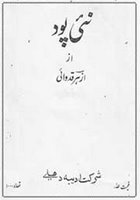 Naana Jaan
Naana Jaan (as we called him) was much loved an admired by Abi, who had
dedicated his book of essays and stories -
Naee Paud - a few years earlier to him in remembrance of the student days at Aligarh when Nana Jan was a greatly admired activist.
Everyone has advised that we head out to Pakistan and return 'once the dust has settled'. (Vazira Zamindar's excellent book,
The Long Partition, indicates that not only did many feel this way but some, in fact,
did return to their old homelands
**). I am stumped today, as I think back, at the naivete of
all the Congress and Muslim League leaders, none of whom seemed to have had any inkling of the level of tragedy that this act of separation - still debated within our own country (and criticized, without even an
attempt at understanding the reasons, in India) - would assume.
(To be continued ...)* If you want a link from where you can download a wonderful audio file of Naushad's recollections of Saigal (well worth hearing),
email me.
**POSTSCRIPT: Added 19th October 8:00 AM
I just came across some
comments by a Mr. Ali Dada (Ref: Oct 18, 6.04PM) on the
ATP site where this post has been included by its editors. While I have responded to his other bits at that site, I do wish to clarify one thing
here because - judging by his conclusion - I did not, obviously, come across clearly enough on this one point: My reference to 'going back' was not only about people who crossed
this way going back to India but something that took place in
both countries after partition. (Mr. Dada obviously did not notice that I
had said "return to their old homelands".) In fact the process was also ‘officially supported’ for a while on both sides of the border. Newspaper ads and other evidence, including some stats, for this are offered in Ms Zamindar’s book.
*** Another update (October 22nd) as a result of a comment by Gopi on
ATP - and also pointed out in two emails.
First, Gopi: ... Such an interesting piece. Incidenally, the Zaibunnissa Street in Karachi is named after Zaib-un-Nissa Hamidullah, the firebrand editor of the Mirror who gave such a hard time to Ayub Khan in the last years of his presidentship. She was an Anglo-Indian (Bengali father and British mother) but married into a Punjabi family. Check out [
this].
My response on AT: @Gopi - Thanks for the Zaibunnisa 'correction'. I know
that was what was proposed and has been recorded by many. However, when some people raised an objection to naming it after her and said that her friends and family had 'pulled strings' to have this done, the authorities responded by pulling Priness Zaibunnisa out of their hat :-) ... but I guess your version, since it is now supported by Wikipedia, stands.
Labels: Books, Events, Music, Pakistan, People, Personal, Poetry, Urdu

